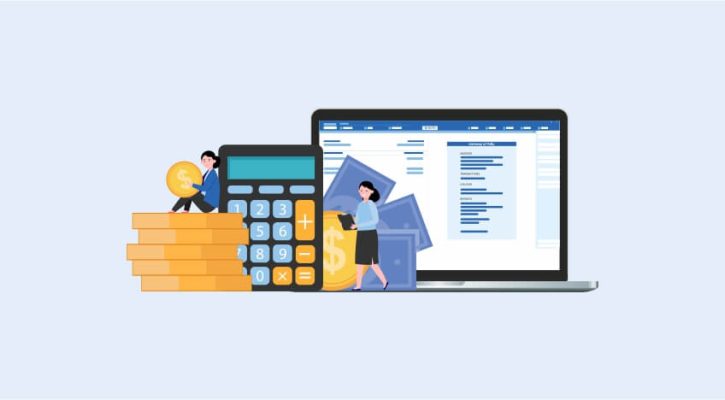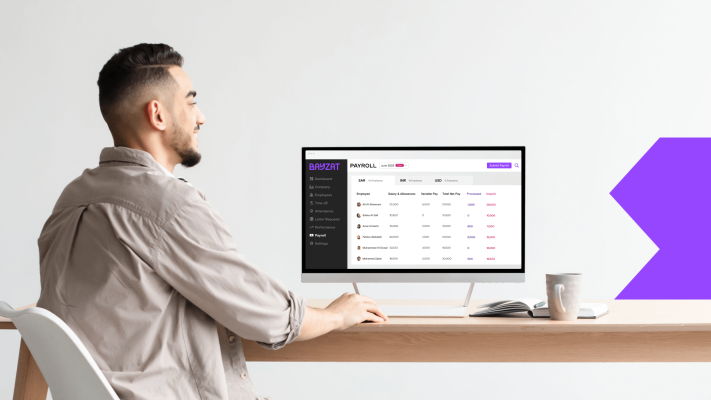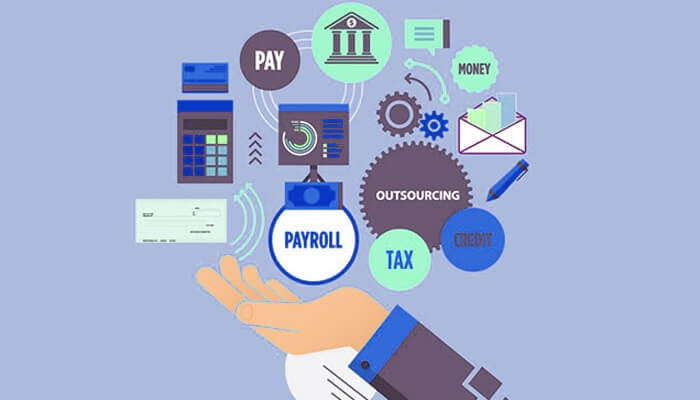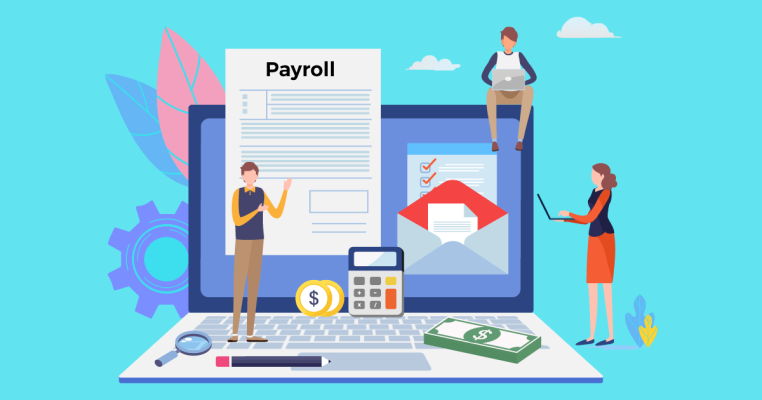Payroll Software
Efficiency is essential in the fast-paced world of business. Payroll administration is one area where efficiency may make a major difference. This is where payroll software comes into play. It’s a tool that has the potential to transform the way businesses handle payroll, making it more streamlined, accurate, and time-consuming.
Table of contents
- What is Payroll Software?
- The Importance of Payroll Software
- Different Types of Payroll Software
- Key Features to Look for
- How to Choose the Right Payroll Software for Your Business
- Implementing Payroll Software: Steps and Best Practices
- Successful Implementation of Payroll Software
- The Future of Payroll Software
- Final Thought
- Youtube Video About Payroll Software
- FAQ
What is Payroll Software?

Payroll software is a specialized tool designed to automate the process of paying a company’s employees. It’s more than just writing cheques and making direct deposits.
It is a comprehensive system capable of calculating earnings based on hours worked, deducting taxes and benefits, generating payslips, and directing payments directly to employees’ bank accounts.
It’s a one-stop shop for all payroll-related duties, making it a must-have tool for companies of all sizes.
The Importance of Payroll Software

Payroll software’s value cannot be emphasised. It first and primarily simplifies payroll processes. Rather than manually calculating each employee’s pay, deductions, and benefits, the programme performs it all for you, decreasing the possibility of errors that could result in financial losses or legal concerns.
Secondly, payroll software ensures compliance with tax and labor laws. With constantly changing rules, it can be difficult for firms to keep current and compliant.
Payroll app can automatically respond to these changes, thereby saving employers from penalties.
It also saves time and resources. Payroll processing by hand can be time-consuming and resource-intensive.
Businesses can focus more on their core activities by automating the process, resulting in enhanced productivity and profitability.
Different Types of Payroll Software
There are several types of payroll software to choose from, each with its own set of features and benefits. Understanding these different types can help businesses make an informed decision that best suits their needs.
In-house Payroll Software

In-house payroll software is a type of app that is installed directly on company computers. This provides organisations with complete control over their payroll procedures, making it an ideal choice for companies who wish to keep their data in-house and have special customisation requirements.
However, to administer and upgrade this type of software, a professional IT team is required. This involves keeping the software up to date with the most recent tax tables and rules, which can be a time-consuming operation.
Furthermore, the initial expenditures for this type of software can be considerable, as it frequently entails purchasing the software as well as the requisite hardware, as well as paying for installation and training.
Online/Cloud-based Payroll Software

Payroll app that is hosted online or in the cloud is accessible over the internet and is hosted on the provider’s server.
This provides ease and flexibility because it can be accessed at any time and from any location, making it an excellent choice for firms with remote staff or various sites.
One of the primary benefits of this sort of software is that it does not require a specialised IT team because the provider handles updates and maintenance.
This can result in substantial cost reductions. Furthermore, cloud-based software frequently functions on a subscription model, making it less expensive upfront.
Payroll Outsourcing Services

Payroll outsourcing services are third-party corporations that manage all payroll activities on businesses’ behalf. This can range from calculating salary and deductions to filing taxes and producing reports.
While this method can save time, it provides less control over the payroll process, especially for small organisations without a dedicated payroll department.
Businesses must have confidence in the supplier to handle their payroll correctly and confidentially.
Furthermore, while outsourcing can be cost-effective for small firms, it may not be the most cost-effective option for larger companies with a significant number of employees.
Hybrid Payroll Software

Hybrid payroll software combines the features of in-house and online payroll software. It offers the control and customization of in-house software with the convenience and cost-effectiveness of online software.
This type of software may be a good fit for firms with unique payroll requirements that cannot be handled by in-house or online software alone.
However, like with in-house software, it may necessitate the usage of a professional IT team to manage and upgrade the programme.
Key Features to Look for
When choosing payroll software, there are several key features to consider:
| Feature | Description |
| User-friendly interface | The software should be easy to navigate and use, even for those without extensive technical knowledge. |
| Integration | It should integrate seamlessly with other systems like HR and accounting, creating a unified system for better data management. |
| Tax filing capabilities | The software should be able to automatically calculate and file taxes, ensuring compliance with tax laws. |
| Reporting and analytics | It should generate detailed reports on payroll activities, helping businesses make informed decisions. |
| Employee self-service portal | Employees should be able to access their pay information, download payslips, and update their personal details through a secure portal. |
| Security features | The software should have robust security measures to protect sensitive employee and company data. |
How to Choose the Right Payroll Software for Your Business
Choosing the right payroll software for your business involves several steps. First, assess your business needs. What size is your company?
What industry do you work in? Which specific payroll issues do you have? The answers to these questions will assist you in determining the features you require in a payroll system.
Consider your budget next. Payroll is available at various pricing points, with costs fluctuating depending on features, user count, and other considerations.
It is critical to choose a solution that meets your budget while not sacrificing crucial features.

Third, look into software ratings and reviews. These can provide useful information about the software’s performance, dependability, and customer service.
Look for software that routinely receives good ratings and positive feedback.
Finally, make use of free trials. Most payroll companies provide free trials, allowing you to evaluate the product before purchasing it.
This might assist you in determining whether the software fits your requirements and is simple to use.
Implementing Payroll Software: Steps and Best Practices
Implementing payroll software involves several steps and best practices. First, prepare your organization. This includes obtaining all payroll data, forming a project team, and developing a project strategy.
After that, train your crew. Make certain that everyone who will be using the payroll understands how to utilise it properly. This could include training sessions, seminars, or hands-on experience.

The software should then be gradually implemented. Begin with a small group of employees or a single department. Once you’re familiar with the software, you may start implementing it throughout the organisation.
Finally, ensure regular updates and maintenance. Like any app, payroll software needs to be regularly updated to function optimally. This includes installing updates, updating data, and performing regular system checks.
Successful Implementation of Payroll Software

Let’s look at a case study to see how payroll can help you. Company X is a medium-sized enterprise with a rising workforce. They were dealing with manual payroll systems that were causing errors and inefficiencies.
After implementing payroll software, Company X saw a significant reduction in errors. Many of their previously laborious operations were automated by the programme, resulting in increased efficiency.
Employees loved the self-service interface, which made it simple for them to retrieve their pay information.
Overall, payroll software assisted Company X in streamlining their operations, saving time, and increasing accuracy.
The Future of Payroll Software

The future of payroll software is promising. Emerging trends like artificial intelligence (AI) and machine learning are expected to further enhance its capabilities.
AI, for example, may be used to automate even more payroll operations, while machine learning could aid in the identification of patterns and trends in payroll data, resulting in more informed business decisions.
Payroll will also become more connected with other company systems in the future, offering a unified platform for managing all elements of a corporation. This will improve efficiency and data accuracy even more.
Are Payroll Taxes Deductible?
Payroll taxes, such, as Social Security and Medicare taxes are typically not eligible for deduction on employees personal income tax filings. However employers can claim their share of payroll taxes as a business expense.
As, for self employed individuals they have the opportunity to deduct half of their self employment tax (which encompasses their portion of Social Security and Medicare taxes) on their income tax return.
Are Payroll Taxes Regressive?
Payroll taxes are often viewed as unfair for lower income earners because they are based on a fixed percentage up, to an income limit for Social Security taxes.
This means that those with incomes pay a proportion of their earnings compared to higher income individuals. Additionally once someones income surpasses the limit they no longer pay Social Security taxes, which has an impact, on lower income workers.
Are Payroll Taxes Federal or State?
In the United States payroll taxes are mainly taxes that contribute to federal programs such, as Social Security and Medicare. However it’s worth noting that certain states and localities may also impose their payroll taxes.
For instance states might have taxes related to unemployment insurance or disability insurance. Nonetheless the primary focus of payroll taxes remains on the level, with Social Security and Medicare being the components.
Final Thought
The payroll software is an essential tool for businesses. It automates payroll procedures, assures tax and labour law compliance, saves time and costs, and delivers important insights into payroll data.
Payroll software is expected to become increasingly more powerful and important in the future as technology advances.
Youtube Video About Payroll Software
You May Also Like
FAQ
The primary benefit of adopting payroll software is that it automates the complex process of managing payroll, lowering the likelihood of errors, assuring tax compliance, and saving time and money.
Yes, most payroll software can link with other systems such as HR and accounting software. This enables for more efficient and accurate data transmission between systems.
Reliable payroll software suppliers protect data. They encrypt and secure your info. Before choosing software, check a provider’s security policies and certifications.
Online/cloud-based or hybrid payroll software providers update periodically to comply with tax laws. Your IT team must update in-house software.
Most payroll software has an employee self-service site where employees may view pay stubs, tax forms, and other payroll information. This transparency decreases HR pay questions.





